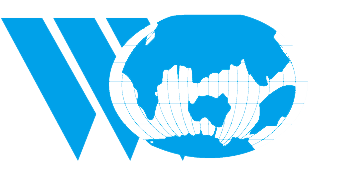China accelerates price reform, major moves expected in pharmaceutical sector
Published Time:
2020-08-21
Chinese Premier Li Keqiang recently presided over an executive meeting of the State Council, deploying the acceleration of price reform.
As the most effective "conductor" in the market, "price" is the core force that allows the market to play a decisive role. Reform surrounding prices has become a tough nut to crack in market-oriented reforms.
Li Keqiang's deployment indicates that after successively "returning" pricing power in multiple fields to the market, the Chinese government will introduce more price reform measures to accelerate the process of market-oriented reform.
A series of signs indicate that the medical and pharmaceutical fields are expected to become a breakthrough point in this round of price reform.
The Chinese government website recently published an article detailing the details of this executive meeting. A dedicated paragraph mentioned Li Keqiang's attention to and statement on the medical field: "Currently, the prices of medical services in public hospitals are indeed too low, but the phenomenon of inflated drug prices still exists. Therefore, reforms should be implemented to gradually rectify this unreasonable pricing mechanism."
This statement releases two important reform signals: First, medical services: In situations where the government finds it difficult to uniformly calculate costs, medical services may be subject to market pricing in the future, allowing the labor value of medical service providers to be reflected; second, pharmaceuticals, the current government model of setting a "ceiling" for drug prices will also be adjusted.
Currently, mainland China's administrative intervention in drug prices is determined by setting maximum prices. Industry insiders reveal that this drug price "ceiling" appears to control drug prices, but in practice it has caused a clear problem: high-cost, high-efficacy drugs, because their prices are closer to the "ceiling," have relatively less room to provide rebates to hospitals; conversely, low-cost, low-quality drugs, because their prices are far from the "ceiling," have greater operating space, leading to a phenomenon of "bad money driving out good money" in the drug market.
Liu Enguo, a professor at the National Development Research Institute of Peking University, told a reporter from China News Service that in the past, without universal insurance, the demand side of drugs lacked a collective bargaining platform to negotiate with drug manufacturers. Individual patients had no resistance to price increases by drug manufacturers. In this situation, the government's setting of maximum prices was necessary. In Liu Enguo's view, the government currently has two favorable conditions to both liberalize drug pricing to stimulate market vitality and avoid major fluctuations.
First, with the increasingly comprehensive government-led universal medical insurance, medical insurance can now form a force on the demand side of drugs through collective bargaining, replacing administrative control and negotiating with drug manufacturers on the supply side.
In addition, improvements in medical insurance payment methods will also help to change the chaos in the drug market. Liu Enguo analyzed that in the past, medical insurance payments for drugs were based on the price of individual drugs, but now, medical insurance payments are not based on drug prices, but on "disease types" or even "number of people."
"The change brought about by the payment method is that the use of drugs by patients is no longer revenue for hospitals but a cost," Liu Enguo gave an example, saying that if medical insurance determines that the treatment of appendicitis is X yuan, then for each case of appendicitis treated, medical insurance will pay the hospital a fixed X yuan. In this case, the hospital's income level depends on whether doctors can use their professional skills to choose more cost-effective drugs. If pharmaceutical companies arbitrarily raise prices, they will naturally not be chosen by hospitals.
Prior to this, CCTV also quoted Peng Sen, a member of the National People's Congress Standing Committee and vice chairman of the Finance and Economics Committee, as saying that the conditions are now fully in place to completely hand over the prices of more than 1,000 types of drugs covered by medical insurance to the market.
However, as Li Keqiang requested, the government must not only establish an open and transparent market-oriented pricing mechanism as soon as possible, but also promote it steadily, ensuring that the public can "afford" the price fluctuations that may result from certain reforms. Therefore, the government's decentralization of drug pricing power requires the cooperation of multiple measures.
Liu Enguo said that to allow drug prices to be determined by the market, it is necessary to continue to improve the collective bargaining capacity of medical insurance and continuously improve medical insurance payment methods. In addition, the government should also increase the enforcement of anti-monopoly laws against pharmaceutical companies to prevent bid-rigging, price gouging, and other acts that harm consumer interests, such as abusing market dominance to make excessive profits.





